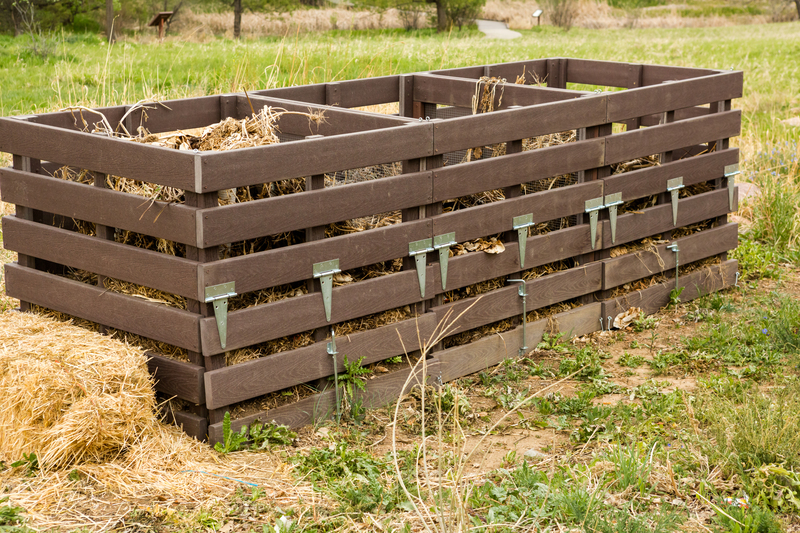Guide to Living with Less Plastic Every Day
Embracing a lifestyle with less plastic might seem challenging in our modern, convenience-driven world. However, making small, conscious changes can have a massive positive impact on the planet and our health. This comprehensive guide teaches you how to reduce plastic usage in your daily life, offers sustainable alternatives, and empowers you to make greener choices every day.
Why Reduce Plastic in Daily Life?
Every minute, one garbage truck of plastic waste ends up in the oceans globally. Plastics, especially single-use items, pollute ecosystems, harm wildlife, and even enter our food chain as microplastics. By living with less plastic, you're not only helping nature but also safeguarding your well-being.
- Reduce environmental pollution
- Protect ocean and wildlife
- Minimize personal exposure to microplastics and toxins
- Support a circular, sustainable economy

Simple Steps Towards a Plastic-Free Lifestyle
Becoming Aware of Daily Plastic Consumption
The first step is to pay attention to how much plastic you use every day. Audit your trash for a week and make a list of every plastic item that comes into your home. Awareness is the starting point for change!
- Beverage bottles and caps
- Plastic bags and packaging
- Cosmetic and toiletry containers
- Ready-meal trays, cling wrap, and snack wrappers
Once you see the patterns, you'll have a better understanding of where to start making changes.
Switching to Reusable Alternatives
Choosing reusable items over single-use plastics is one of the most effective ways to cut down on plastic waste. Here's how you can make the switch in different aspects of your daily life:
- Shopping: Use canvas totes or eco-friendly shopping bags instead of plastic bags. Bring your own reusable produce bags for fruits and veggies.
- Beverages: Carry a stainless steel or glass water bottle. Say no to disposable coffee cups and invest in a reusable cup or thermos.
- Food Storage: Replace plastic wrap with beeswax wraps, silicone lids, or glass containers.
- Cutlery: Keep a set of bamboo or metal utensils in your bag or car.
- Straws: Opt for metal, bamboo, or silicone straws--better yet, go straw-free.
Making Your Kitchen a Plastic-Free Zone
The kitchen is often where the most plastic waste is generated. Transform your kitchen routines by making these low-plastic switches:
- Buy in Bulk: Purchase grains, nuts, and other staples from bulk bins using your own bags or jars.
- Choose Glass or Cardboard: Prefer items packaged in glass, metal, or cardboard when possible.
- Skip Plastic Produce Bags: Use mesh produce bags or none at all.
- Make Your Own Snacks: Prepare snacks at home to avoid individually wrapped items.
Pro Tip: If you have access, shop at farmers' markets where produce is more likely to be plastic-free.
DIY Cleaning and Storage Solutions
Many cleaning products come in plastic bottles and packaging. Try making your own cleaning solutions using ingredients like vinegar, baking soda, and essential oils--store them in glass spray bottles for a plastic-free alternative.
- Natural Sponges: Use cellulose sponges or cloths instead of synthetic options.
- Soap: Buy bar soap in paper packaging and refill liquid soap at bulk stores if possible.
Reducing Plastic in the Bathroom
Bathrooms are filled with plastic containers and disposables. Here's how to start living with less plastic in your self-care routine:
- Switch to Bar Products: Use shampoo, conditioner, and soap bars instead of bottles.
- Bamboo Toothbrush: Replace plastic toothbrushes with bamboo or plant-based materials.
- Plastic-Free Floss: Try silk or biodegradable floss in glass bottles.
- Reusable Razors: Use metal safety razors versus disposable plastic ones.
- Menstrual Products: Consider switching to menstrual cups, reusable pads, or period underwear.
Eco-Friendly Beauty Tips
Look for makeup brands with refill programs, glass packaging, or a focus on zero-waste. DIY skincare, like face masks and scrubs, can also help reduce plastic usage.
Plastic-Free Living on the Go
- Travel Mug and Water Bottle: Always carry your own.
- Snacks: Pack homemade snacks in small containers or cloth wraps instead of buying individually packaged food.
- Public Events: Politely refuse plastic straws, cutlery, or bags at restaurants, cafes, or events.
*Be prepared!* Plan ahead and keep a zero-waste kit (water bottle, utensils, straw, bags) in your backpack, car, or purse.
Sustainable Swaps for Everyday Products
Switching from plastic products to more sustainable alternatives is easier than you think. Here are some quick swaps to consider for sustainable living with less plastic:
- Toothpaste: Try toothpaste tablets in recyclable glass jars.
- Laundry Detergent: Use powder or laundry strips instead of plastic bottles.
- Cloth Napkins and Handkerchiefs: Replace paper napkins and tissues.
- Compost Bins: Use compostable bin liners or none at all.
- Stationery: Choose pens and notebooks made from recycled or non-plastic materials.
Choosing Eco-Friendly Plastics When Necessary
There will be times when living plastic-free is not entirely possible. In those cases, aim for responsible choices:
- Look for Recycled Content: Prefer products made with recycled plastics.
- Check Recycling Codes: Plastics labeled with codes 1 and 2 (PET and HDPE) are generally easier to recycle.
- Avoid Multi-Layered Packages: These are usually not recyclable.
Get the Most from Recycling
Recycling is important, but not a perfect solution. Even the best systems can only recycle plastics a finite number of times, and much of what you put in your bin may still end up in landfill or incinerators.
- Rinse containers before recycling to prevent cross-contamination.
- Know your local recycling rules--each city may accept different items.
- Don't bag recyclables in plastic bags--they often clog recycling machinery.
- Whenever possible, reduce and reuse before recycling.
Community and Advocacy: Multiply Your Impact
Going beyond your own home magnifies your positive influence. Encourage friends and family to embrace a low-plastic lifestyle. Join or support organizations working to reduce plastic pollution.
- Host talks or workshops in your community about living with less plastic.
- Support local businesses that use biodegradable or eco-friendly packaging.
- Advocate for policies that ban single-use plastics or promote sustainable packaging.
Common Myths About Reducing Plastic
Myth 1: "Reducing plastic is too expensive."
Fact: Many plastic-free alternatives are reusable and save money over time.
Myth 2: "One person can't make a difference."
Fact: Every action counts! Collective small changes have a massive impact.
Myth 3: "Living without plastic is inconvenient."
Fact: New habits may take time, but eventually, they'll become second nature and often more rewarding.
Living with Less Plastic: Frequently Asked Questions
- Can I really avoid plastic completely?
It's difficult, but even reducing plastic by half makes a huge difference for the planet. - Aren't bioplastics a solution?
Many bioplastics still require industrial composting to break down and can cause similar pollution if not properly handled. - How can I balance convenience and sustainability?
Prioritize the changes that are easiest for you, and build from there. - Does my recycling end up in landfills?
Properly sorted, clean items are more likely to be recycled, but not everything is recycled. Reducing use is more effective.

Building Sustainable Habits That Last
Creating a lifestyle with less plastic is all about forming new, mindful habits. Start with small steps--bring your own bags, refuse plastic straws, or try a bar of soap. As you build confidence, add more swaps and share your journey with others.
- Set realistic goals: Swap one plastic item per week.
- Track your progress: Keep a journal or share updates online.
- Celebrate small wins: Every bit counts towards a cleaner planet.
- Keep learning: Stay updated on new sustainable products and practices.
Towards a Greener Future
Learning to live with less plastic every day is a journey, not a destination. Every conscious choice you make--no matter how minor--contributes to a larger movement for environmental health and sustainability.
Start today: choose one plastic item to swap, inspire someone else, and watch the ripple effect grow. The planet (and future generations) will thank you.
Additional Resources
- Plastic Pollution Coalition
- World Wildlife Fund - Plastics
- Greenpeace: Plastics
- My Plastic-Free Life
Ready for less plastic? Start your journey today!